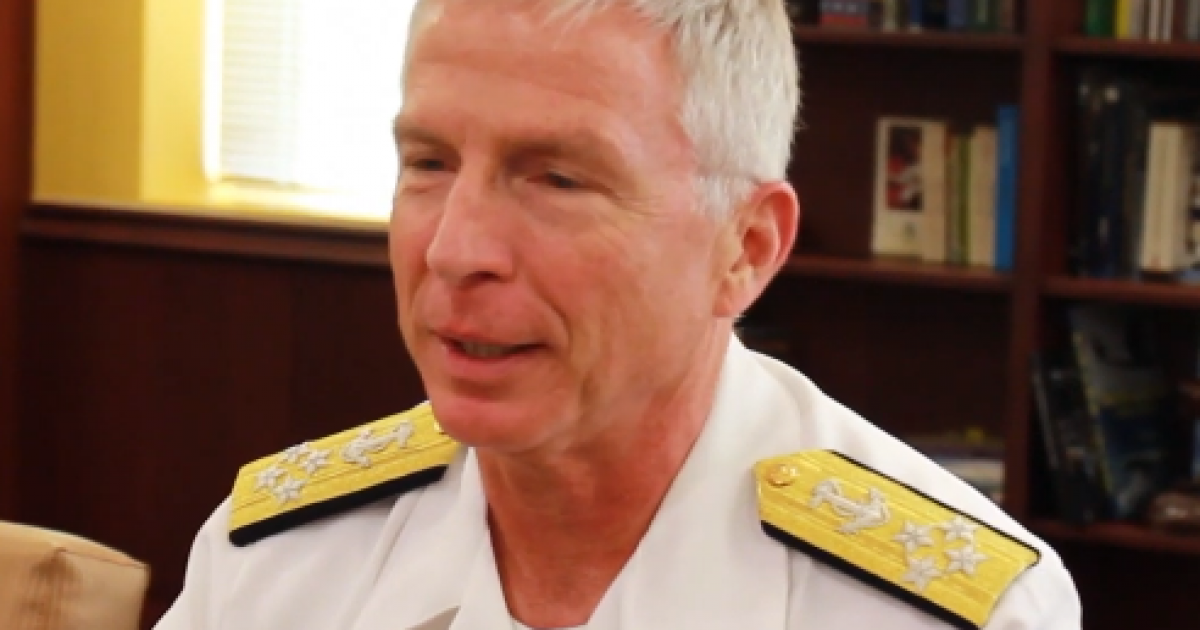
Navy Admiral Craig Faller, the Commander of US Southern Command, is no fan of cryptocurrencies.
According to a report by Jose Antonio Lanz at Decrypt, Faller believes that the use of such online currencies throughout the “young democracies” of South America pose a geopolitical problem for the U.S. government. Faller, claims to be taking this “threat” very seriously.
“Often, these young democracies—and very young, sometimes weak institutions—are under assault from corruption from transnational criminal organizations—which is a $90 billion a year enterprise [that] traffics in people, guns, drugs and other commodities, money laundering, [and] cryptocurrencies,” remarked Commander Faller at a talk with the Council of the Americas on October 5, 2020.
“Sixty percent of the cryptocurrency in the world is in this hemisphere, and a lot of that is because folks are trying to avoid regular order in the international financial system,” he stated.
Lanz demonstrated that this number is wrong. His article highlighted how the “data suggests that the biggest cryptocurrency market by volume is actually East Asia.” Faller cited the example of Venezuela as one country that could pose a threat through the use of crypto. In 2018, the country released the Petro, a national cryptocurrency, which has had spotty results thus far.
The admiral talked about how the U.S. government is concerned with “external state actors” such as China, Iran, and Russia and their growing influence in the region. Faller also noted that “malign actors” such as Cuba, Venezuela, and Nicaragua usually work with those external political players. The admiral’s concerns are very much geopolitical in nature.
What the admiral is worried about is how Cuba and Venezuela have increased their usage of cryptocurrency in the past few years in order to go around the “regular order in the international financial system” and avoid U.S. sanctions.
Faller stressed the importance of bolstering alliances with countries such as Colombia through intelligence sharing and military cooperation.
Despite the Petro’s failure, the Venezuelan government recently granted a license for a Decentralized Stock Exchange. In contrast to the Petro, which is state-backed, this exchange is “completely decentralized and transparent” according to Lanz. Additionally, Lanz showed how Venezuela has stirred the pot by promoting “the use and adoption of cryptocurrencies as state policy nationally and internationally.” In addiition, the Venezuelan Central Bank revealed that it partially holds Bitcoin and Ethereum in its international reserves.
Data from Chainalysis, a research firm that specializes in topics concerning cryptocurrencies, demonstrated that Venezuela is in third place for nations adopting cryptocurrency.
Though the extent that the Venezuelan government has adopted Bitcoin may be exaggerated, the fact it’s dabbling in cryptocurrencies makes U.S. regime changers nervous. The dollar’s reserve currency status is one of the key factors behinds its hegemonic state. Anything that challenges that can be seen as a threat.
Venezuela is not governed by angels, but there is a sense that government officials are now recognizing that it’s interventionist policies have been a total failure. The least they could do is to entertain using crypto to mitigate the damage of their economic misbehavior.
Whether crypto succeeds is a different story. The virtue of these competing currencies is that they emerge on a free market and their value is determined by users who decide if they are a useful medium of exchange, store of value, and unit of account. In essence, it’s market mechanisms that ultimately decide this.



